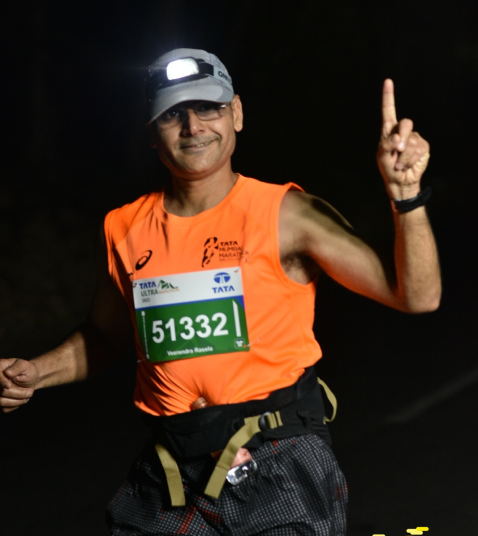Running: Beyond physical fitness, a path to personal growth

“Life is a lot like a marathon. If you can finish a marathon, you can do anything you want.” – Oprah Winfrey
Running, for me, serves more than just a means to maintain physical fitness. It not only acts as a shield against lifestyle-related ailments like obesity, heart issues, blood pressure, diabetes etc. but also strengthens my immune system, joints, improves cardiovascular health and muscle strength. This could be the reason why most people practice running, but for me, this exercise holds a profound significance, surpassing its mere purpose of keeping me physically fit. It has also served as a catalyst for personal growth, helping me cultivate a better version of myself.
Running enables me to do self examination. As I engage in my run, I engage in a conversation with myself, examining my actions and choices. If I have done something wrong, then the inner voice inside me tells me what wrong I have done. If I have done something good, then that inner voice prevents me from being arrogant. If I have to help someone, this is the time when I get reminders internally. Thus, running has become a gateway to selfreflection and introspection, allowing me to delve into the depths of my being and gain valuable insights.
Through my experiences in running, I have come to understand that desired outcomes are not attained instantaneously; they require consistent effort and enduring patience over an extended period. This principle extends beyond the realm of running, finding relevance in various aspects of our daily lives. There are often situations where we must exercise patience, recognising that certain goals or resolutions may take time to manifest.
I have learned self discipline through running. I’ve come to understand that without self-discipline, my performance suffers. This lesson applies not only to running but also in every area of life.
Moreover, running has instilled in me the importance of time management. In my daily training, as well as on race days, effective time management is crucial. This skill extends beyond running and plays a significant role in various aspects of my life. I have learned how to set goals and work towards achieving them. It has been an essential factor in helping me reach my objectives both on and off the track.
Apart from these learnings, running has also helped me to become thankful in my life. When I am running, I express gratitude toward those who have contributed to my growth as a runner. I also remember the books / websites from which I learned something about running. This practice of gratitude has now transcended running and has become an integral part of my daily life. I recognise the importance of being grateful to anyone who has made a positive impact on my journey, fostering a mindset of appreciation and acknowledgement for the kindness and support I receive.
Running not only cultivates a positive mindset but also empowers me to better control my negative thoughts and emotions. As runners strive to achieve specific goals within a designated time frame, they naturally maintain an optimistic mood throughout their runs. This positivity seamlessly extends to their daily lives, as they actively seek positivity in various aspects and individuals. Thus, running becomes a transformative practice that enhances my emotional well-being.
Running connects me to the community. Jogging through the streets and parks near me helps me to feel grounded and connected to Mother Nature and surroundings.
During my runs, I experience a state of profound connection with a higher consciousness. Detached from thoughts, I enter a blissful flow where time, location, and even my own identity fade away. Covering distances of four to five kilometres, I find myself immersed in pure serenity—a pinnacle of inner peace and contentment that rejuvenates my spirit. Perhaps this is the state of ultimate bliss.
I acknowledge my limitations and know that I cannot make a world record. I also understand that every runner’s ability is different, and the only competition that lies is with myself. If my performance is better than my previous performance, I consider it a win, and if it hasn’t improved, I’ve lost. Falling behind is seen as a temporary setback, while improvement is celebrated as a personal victory. This principle extends far beyond running, permeating every aspect of life and motivates us to constantly strive for excellence. From a spiritual perspective, this mindset aligns harmoniously with the concept of becoming a karmayogi — a dedicated seeker of self-improvement through diligent action.

– Veerendra RaselaVeerendra Rasela
TBWES – EXIM, Energy House, Chinchwad



